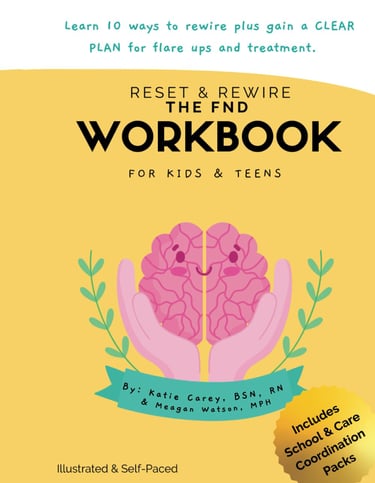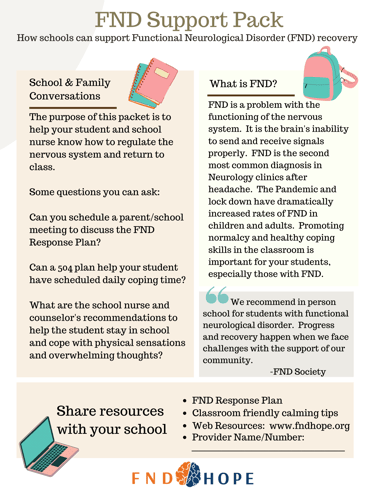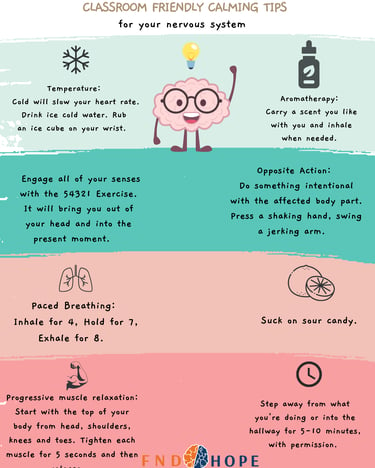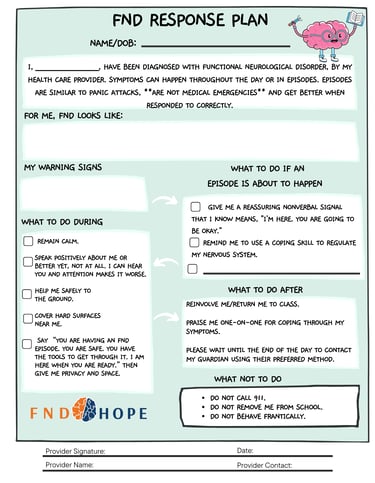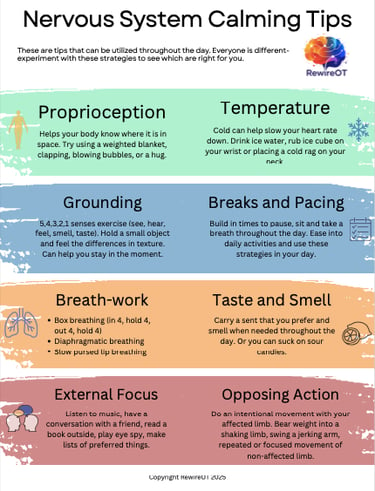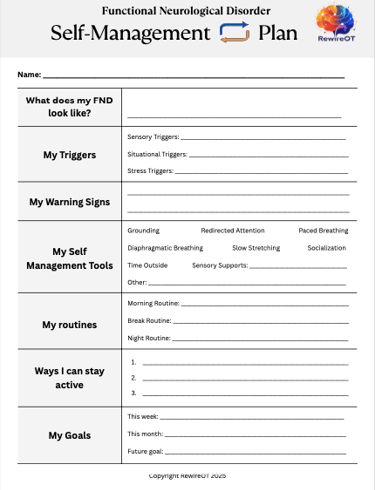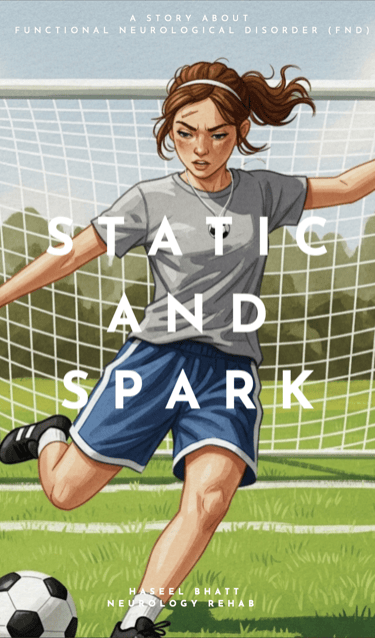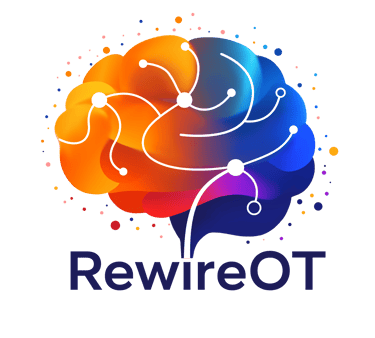Youth and Young Adult Resources

Reset and Rewire: The FND Workbook for kids and teens
This resources is geared toward young people, but all principles, explanations and resources can be useful for all ages. This workbook is intended to be self-paced and guide through a multi-week progression to improve symptoms and overall functioning. Best if guided by an FND aware provider. Available through Amazon.com.
FND School Pack: Functional Seizure Response Plan
This FND response plan is intended to be utilized for pediatric patients with Functional/Dissociative Seizures to help support transition back to school, but can be used for work settings as well. The way you respond to functional seizures is different than epileptic seizures where vital monitoring, calling 911 and medication are appropriate response. Functional seizures can be exacerbated by this type of response, thus this plan was created by the FND Society Pediatric SIG.
For further information on Functional Seizures follow the link below.
Self-management Tips
Self-management is the end goal after a client has engaged in Occupational Therapy, Physical Therapy or Psychological treatment. Self-management plans should be engaged in throughout treatment and should always be personalized.
Everyone is different. Trial different self-management strategies to see what works best for you to make your personalized plan.
What is different with youth/young adult FND?
As young people develop and grow, they are faced with a variety of biological, psychological, and social factors that can significantly impact their lives. Often, young people are ill equipped to managed these factors on their own. For this reason, including caregivers in treatment planning and education is important. Some examples are:
Academic pressures (tests, advanced courses, school transition)
Relationships (peers, family, teachers, coaches)
Life transitions (school progression, puberty, driving)
Developmental (social, emotional, general development)
Social factors (social media, self identity, self esteem)
Co-morbid diagnosis (anxiety, depression, hEDS, POTS)
These are often observed being perpetuating factors that occur prior to FND onset. Affects of these life changes can often impact and exacerbate FND symptoms.
Bio-Psycho-Social Factors
Symptom Types and Treatment
Functional neurological disorder (FND) symptoms in young people are similar to what is seen in adults, including weakness, abnormal movements, sensory disturbances, and functional/dissociative seizures. These symptoms often significantly impact a young person's ability to engage in important activities such as daily occupations (grooming, sleep, etc.), attend school, extracurricular activities, and decreased social engagement.
Given the complexity and variability of FND, a multidisciplinary care approach that can involve neurologists, psychologists, psychiatrists, physical therapists, occupational therapists and speech therapists. Treatment is tailored to the young person's developmental level, emotional maturity, symptom type, social support, co-morbid concerns and personalized activity engagement for best functional recovery.
Use of developmental/play tasks
During treatment, it is important to match activities with the young person's physical, mental and developmental skill levels. Utilizing activities that are preferred, function focused and integrate appropriate developmental skills will help obtain best functional recovery and self management.
Utilizing these preferred and developmentally appropriate tasks teamed with nervous system calming activities (find calming tips in self management section above) helps progress consistent activity engagement, confidence in functional abilities, gradual activity engagement, and appropriate activity pacing that can more easily carry over to real life situations.
Young life specific stressors
Though stress is not required for an FND diagnosis, having functional symptoms that take you out of your normal routine can be stressful. Also, constant or intermittent functional symptoms caused by nervous system miscommunication is stressful to your body, sometimes causing pain and fatigue.
But development itself can also be stressful when factoring in the many life transitions, focus on social acceptance, beginning to exercise autonomy, gaining independence, increased school/social demands, beginning to work, transitioning to independent living, higher education, and more.
Nervous system regulation tools can also be very effective for stress management and should be a major component of treatment for youth and young adults. Holistic care encompasses treating both the mind and body.
Social Skill Development
Young people are learning how to express themselves through many types of communication, choices and the activities they engage in. This is also one way that young people gain self confidence, build their self identity and express self agency. With decreased engagement in occupations and socialization often occurring after FND symptom onset, it is important to factor in socialization, supporting transition back to school and preferred activities into your treatment.
Ask what is important to this young person? What are they worried about in returning to school? What is their plan to manage their FND symptoms? Treatment that includes the use of social engagement to support symptom progression can build confidence, increase carry over of skills and support management of co-morbid diagnosis such as anxiety, pain and chronic fatigue.
Return to school importance and planning
Talk with your care team about putting together a return to school plan. This personalized plan is intended to help with gradually returning to school or returning to your normal schedule with supports. Continued engagement in school helps with rewiring the nervous system, increased adaptability to environmental changes and helps with co-morbid issues such as pain and fatigue through consistent occupation engagement. Homebound schooling for this reason is not recommended for those with FND.
Ask your medical provider for a school letter to outline specific recommendations, equipment needs (with plan to decrease use), proactive breaks and other supports needed for your personalized return to school plan.
